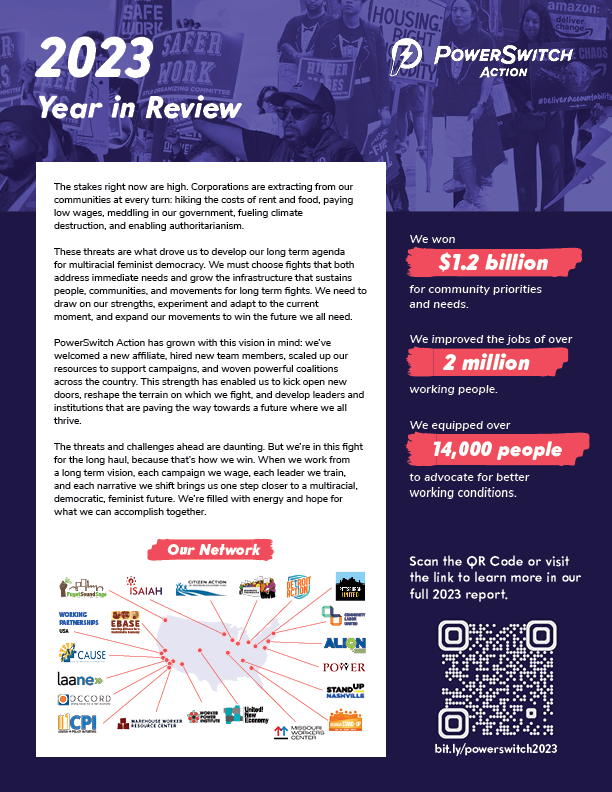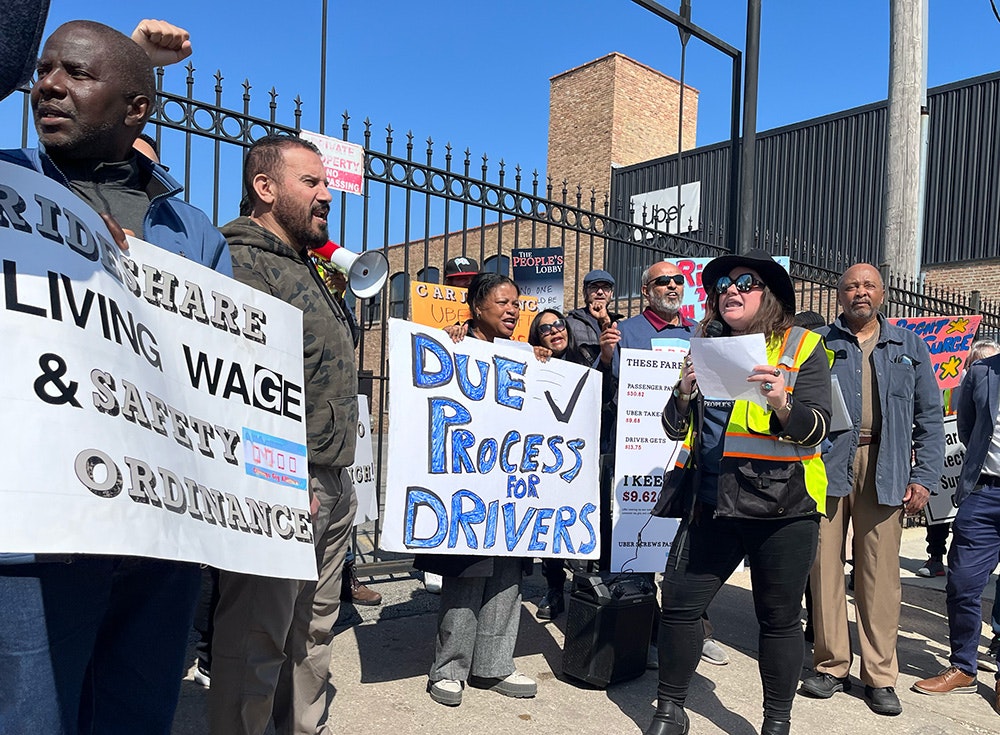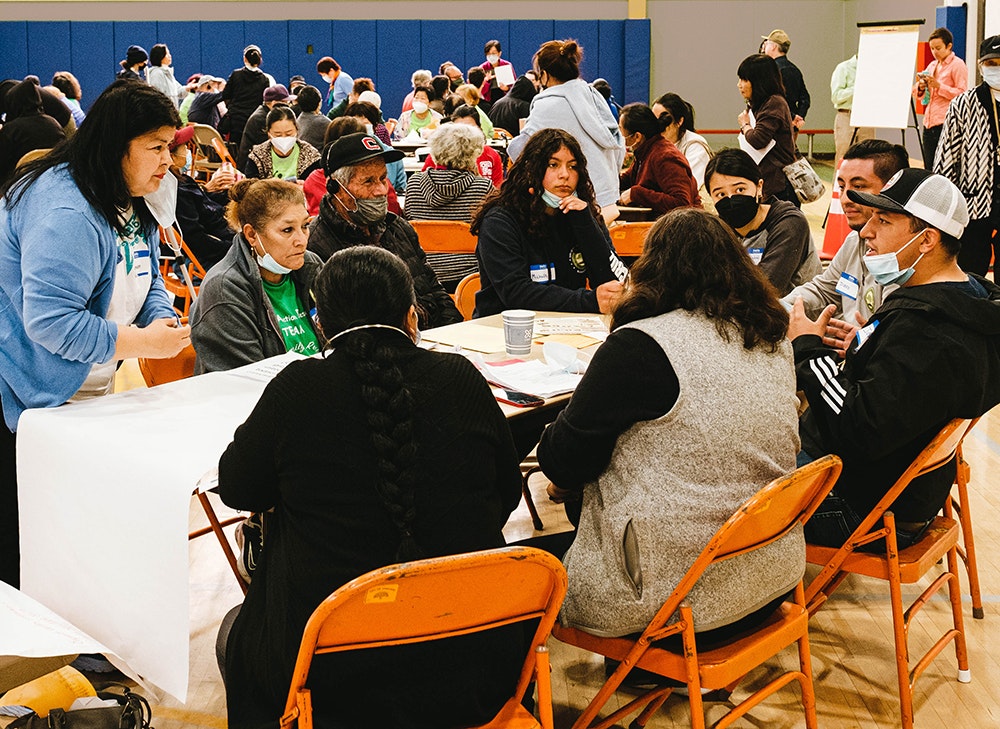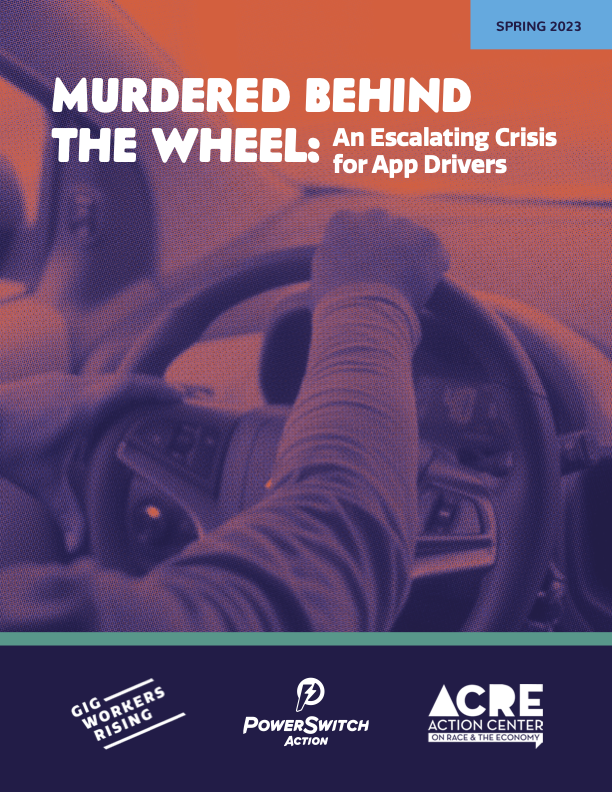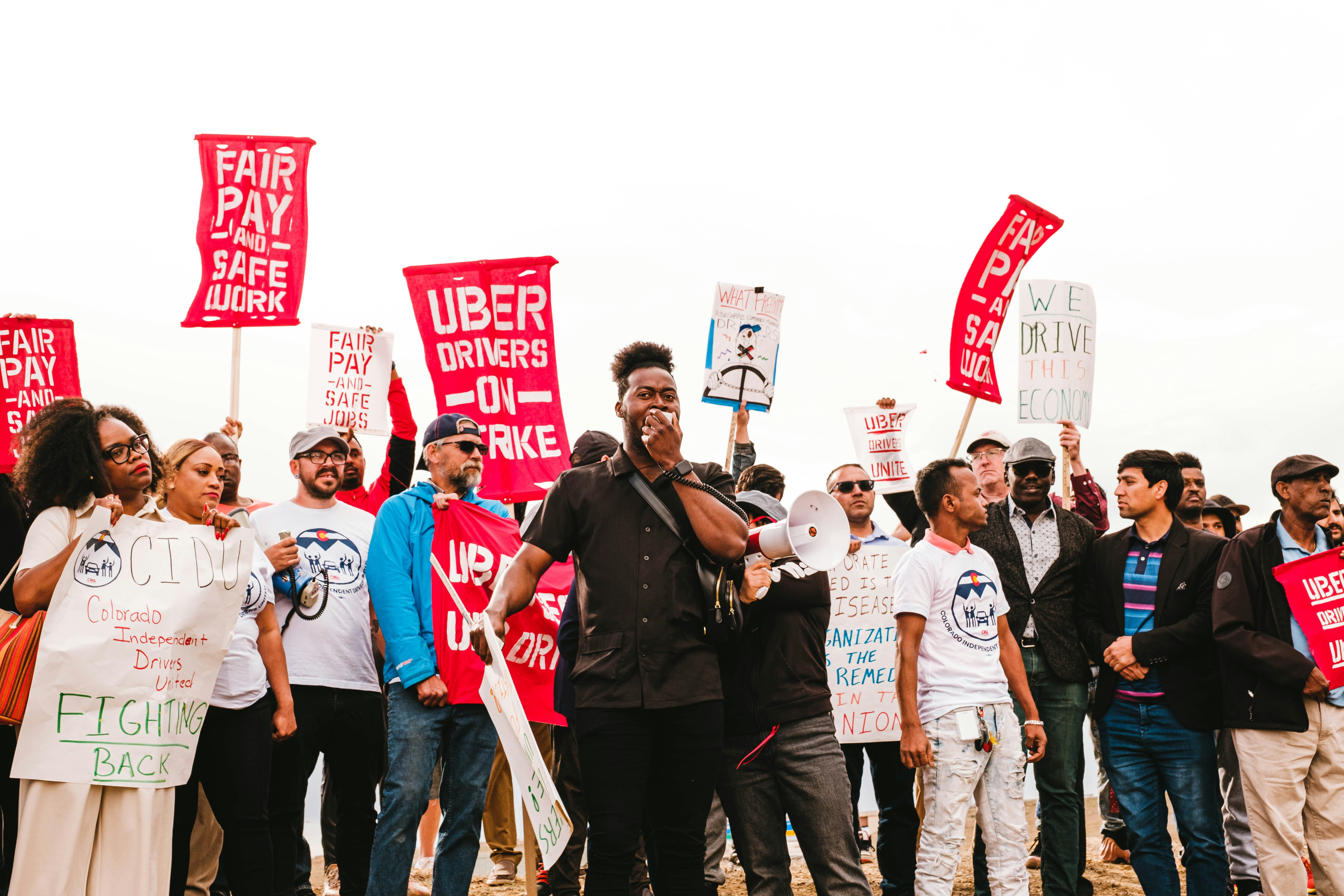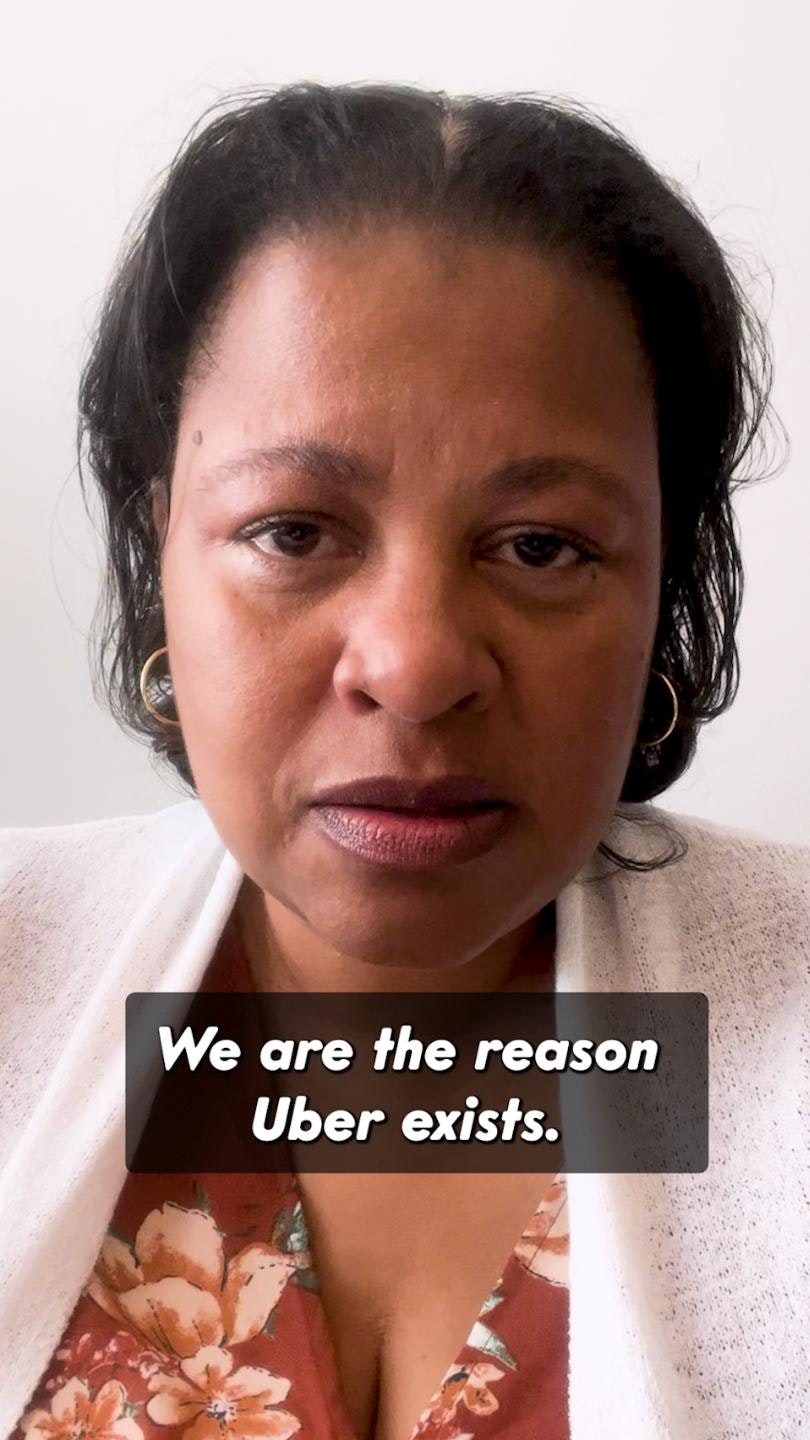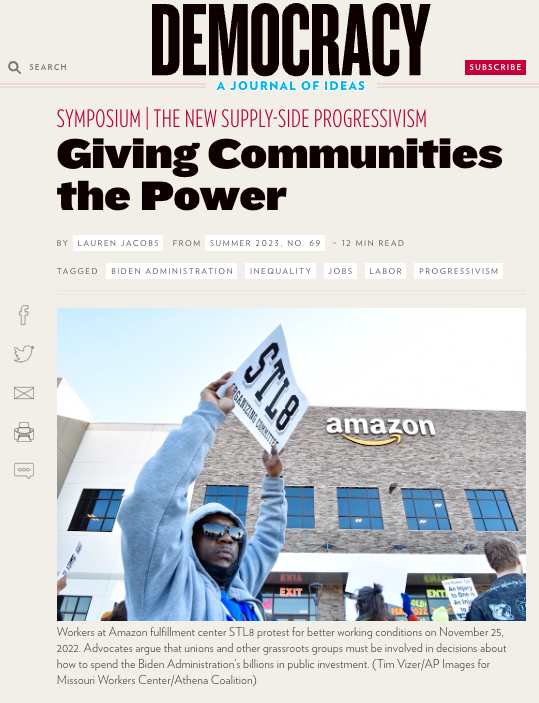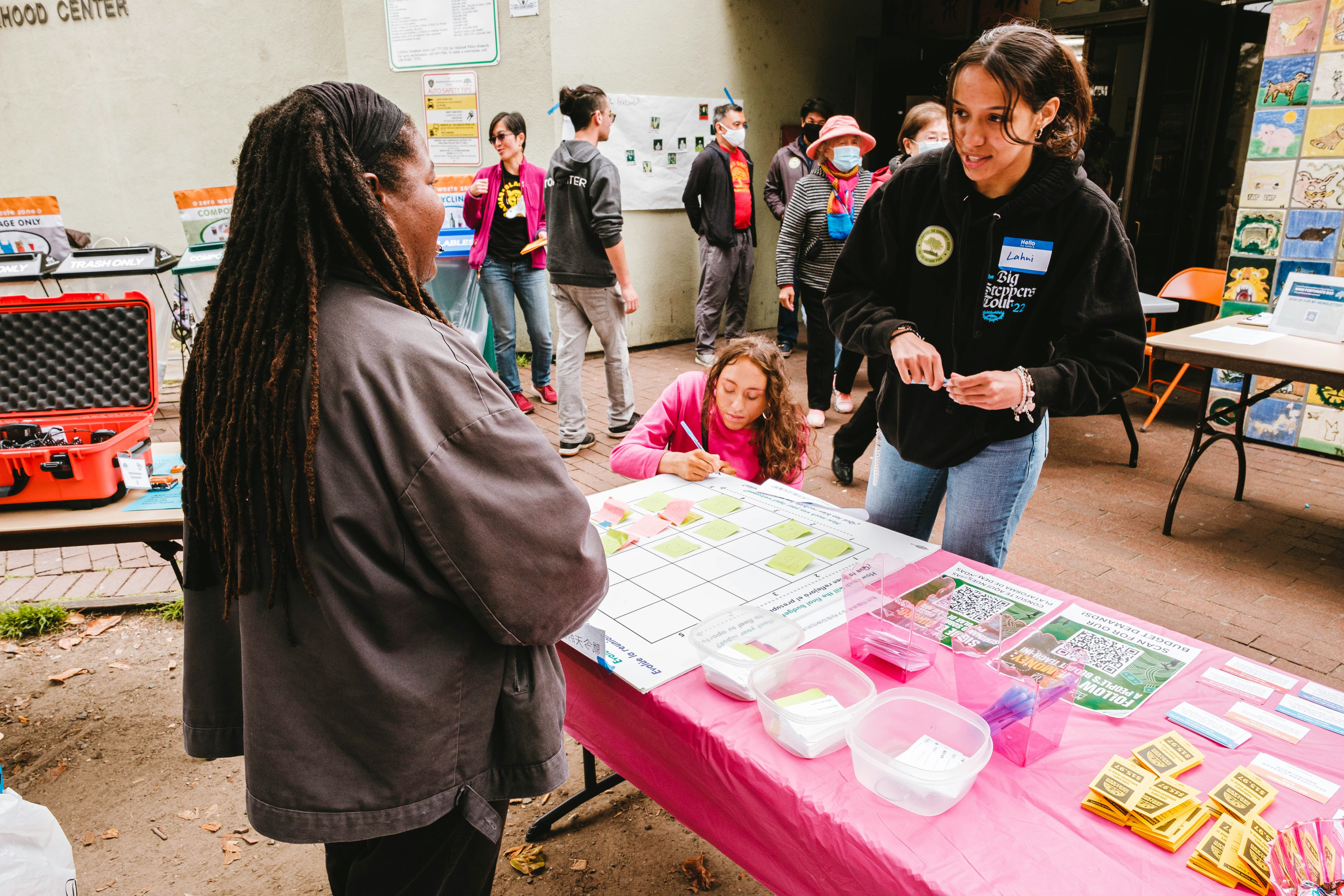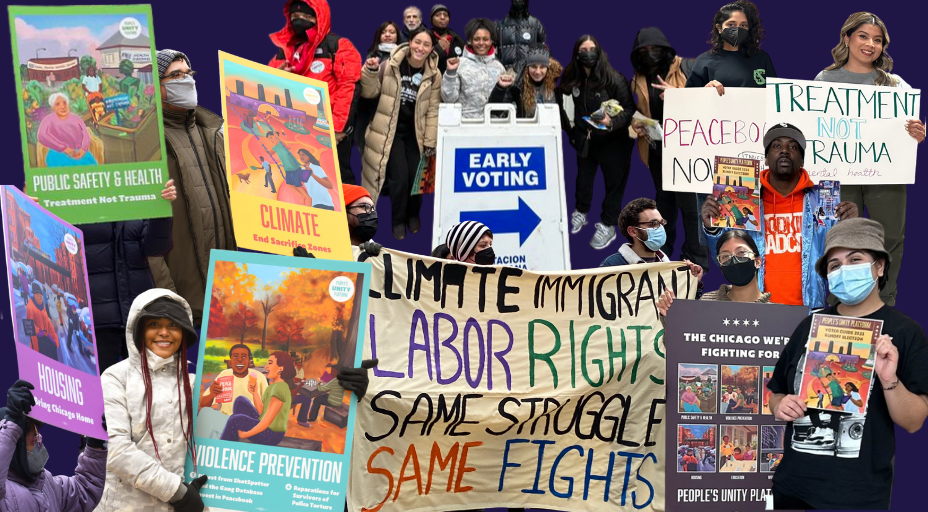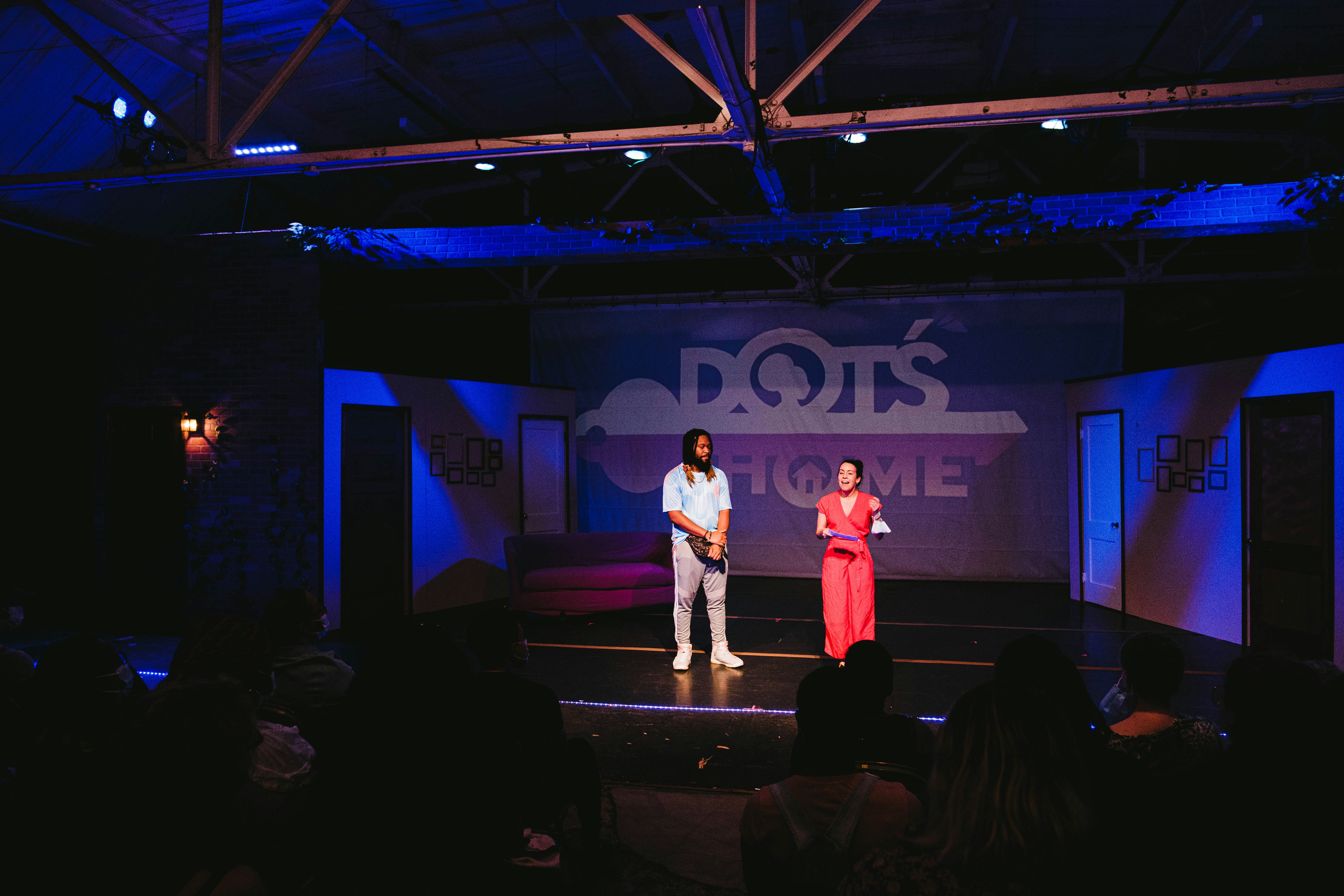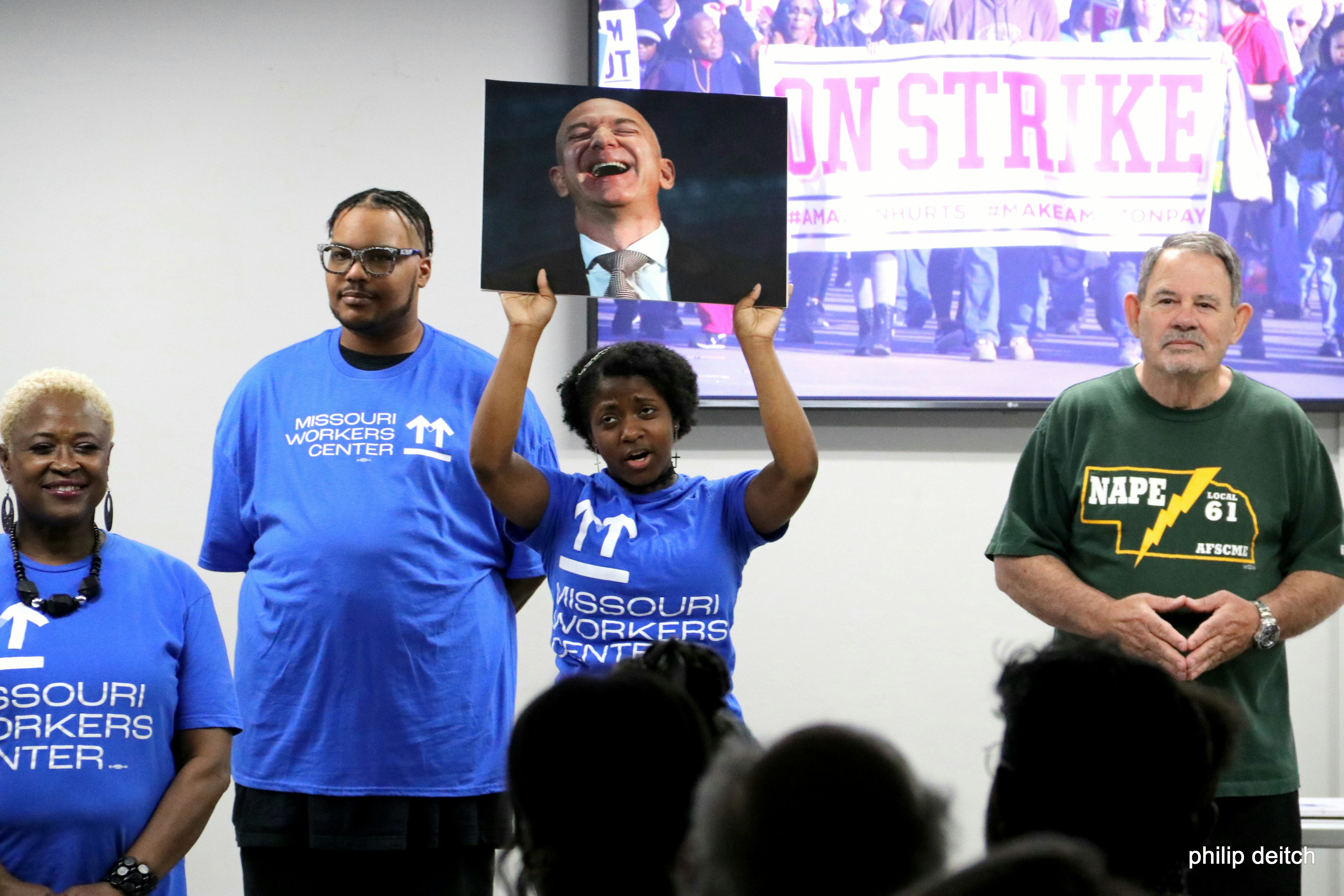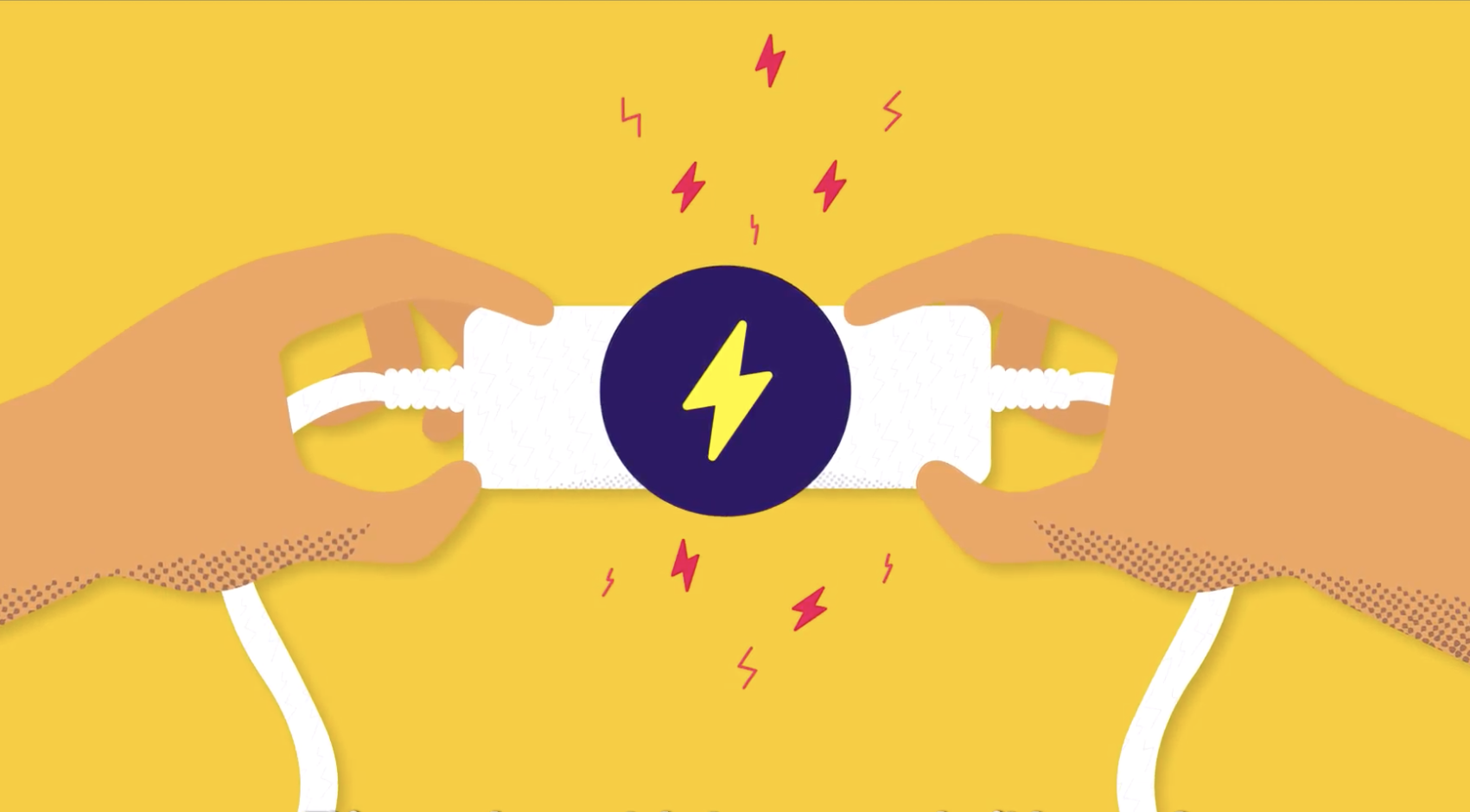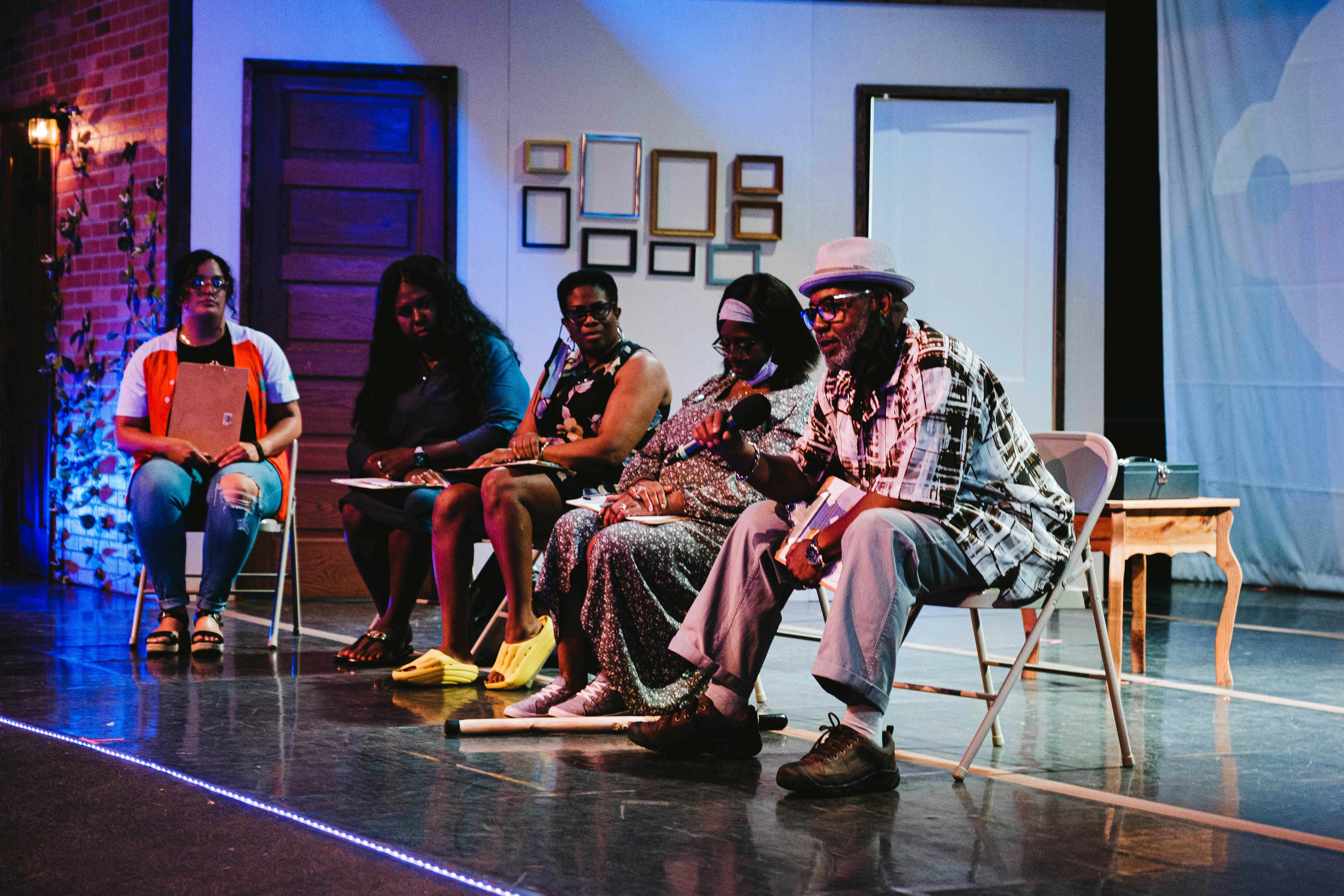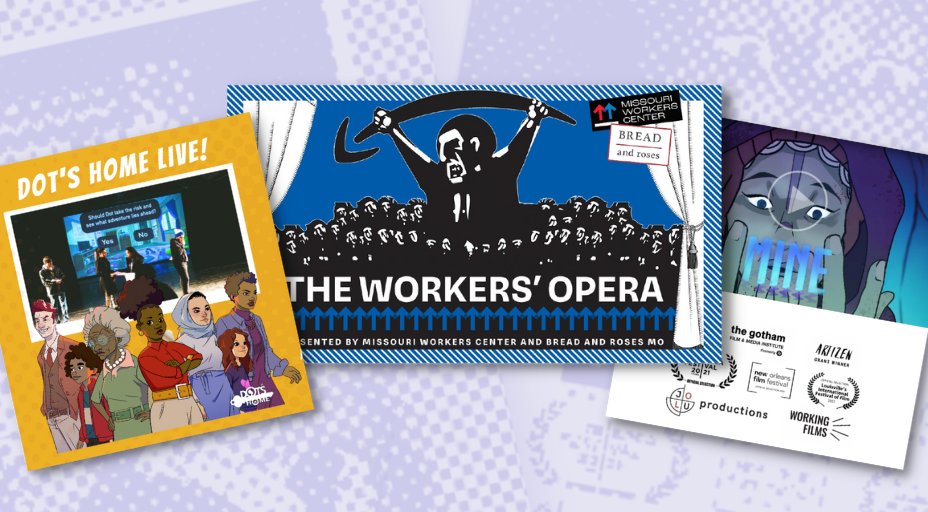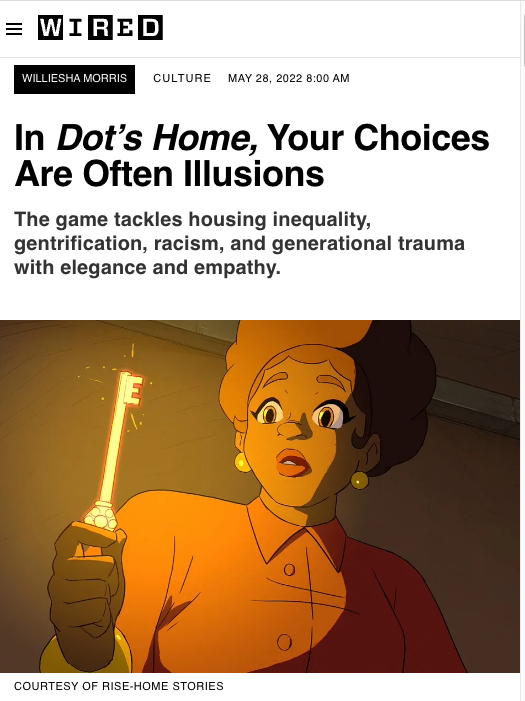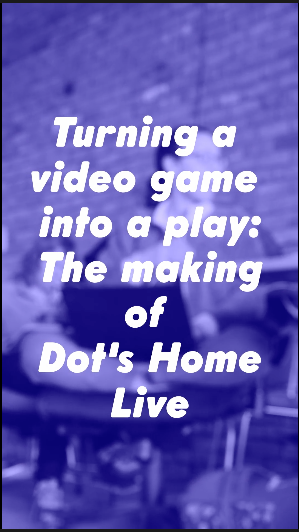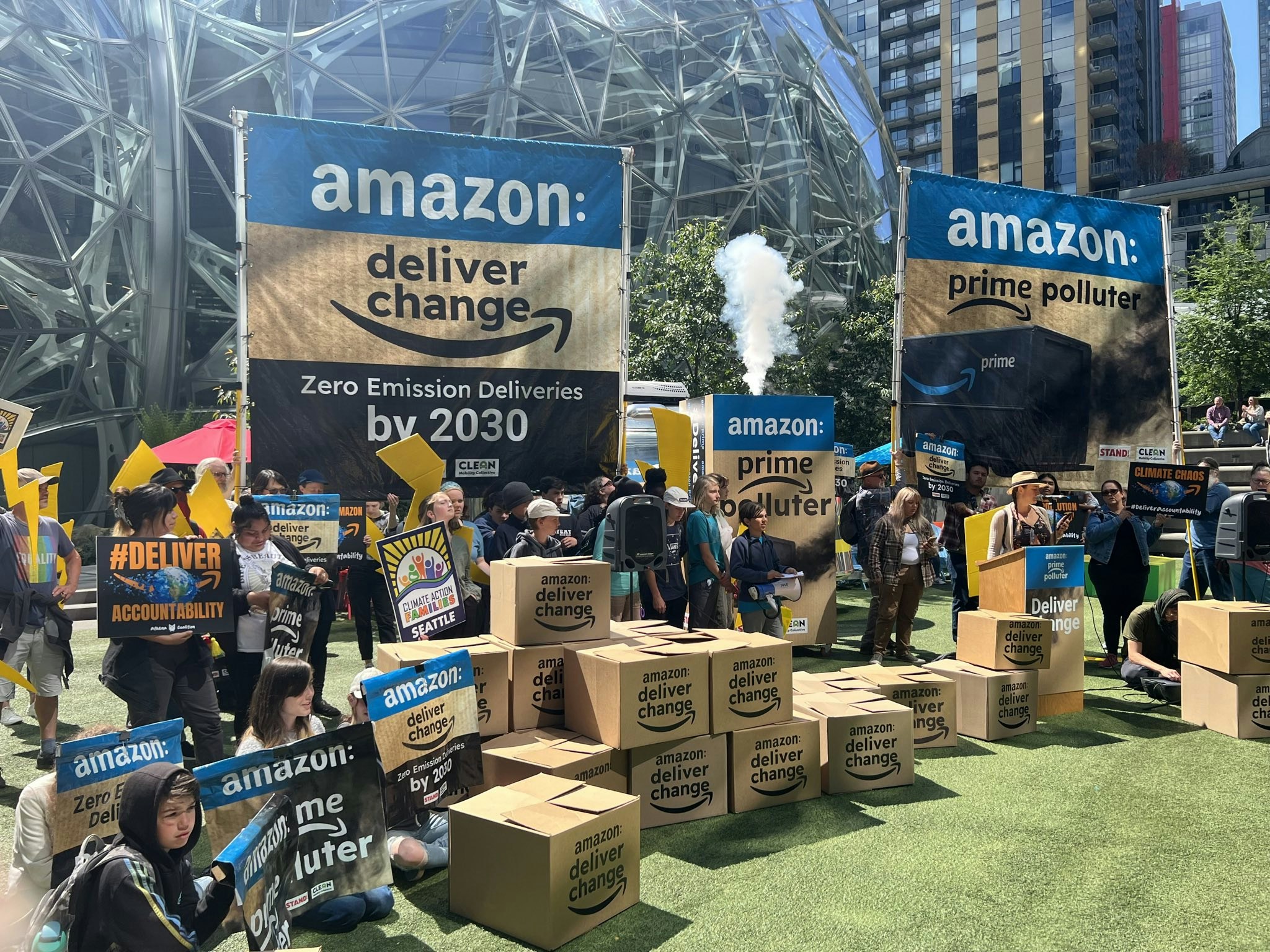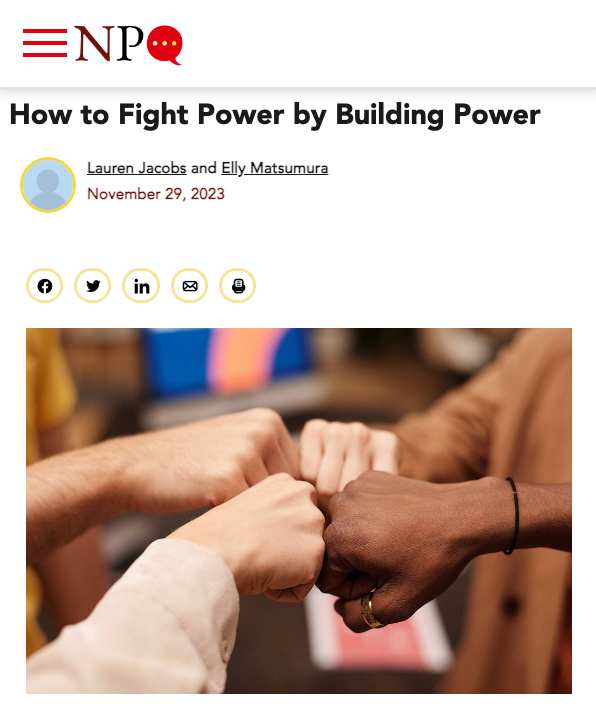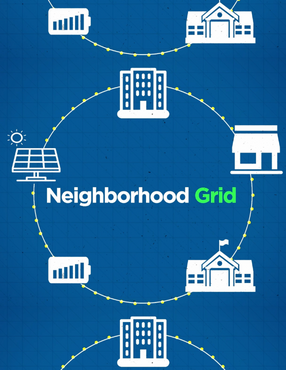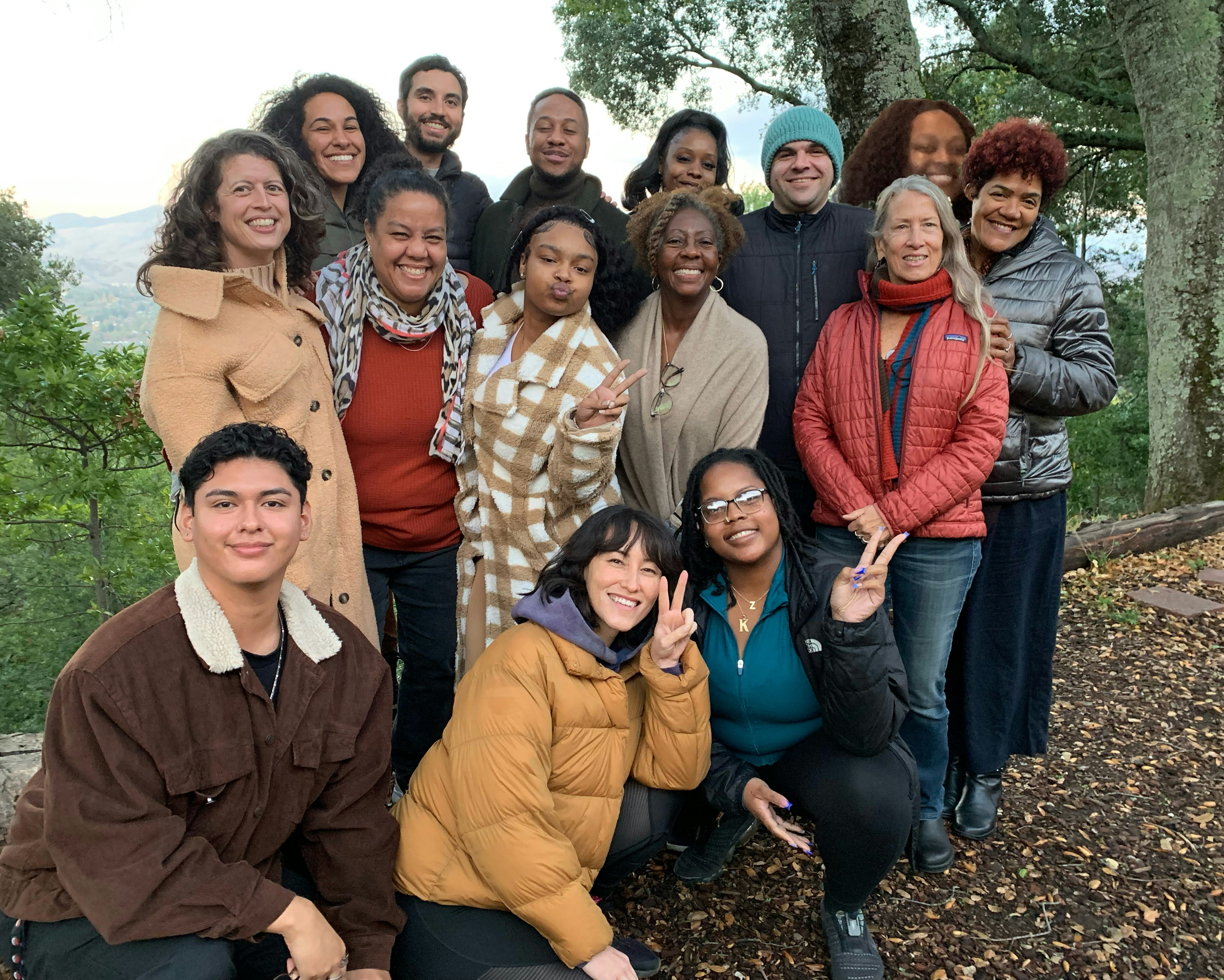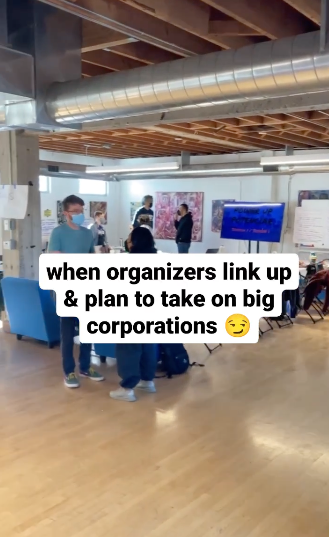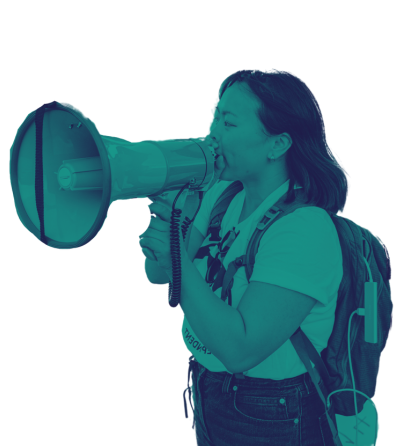report
2023 Year in Review
A year of leveling up
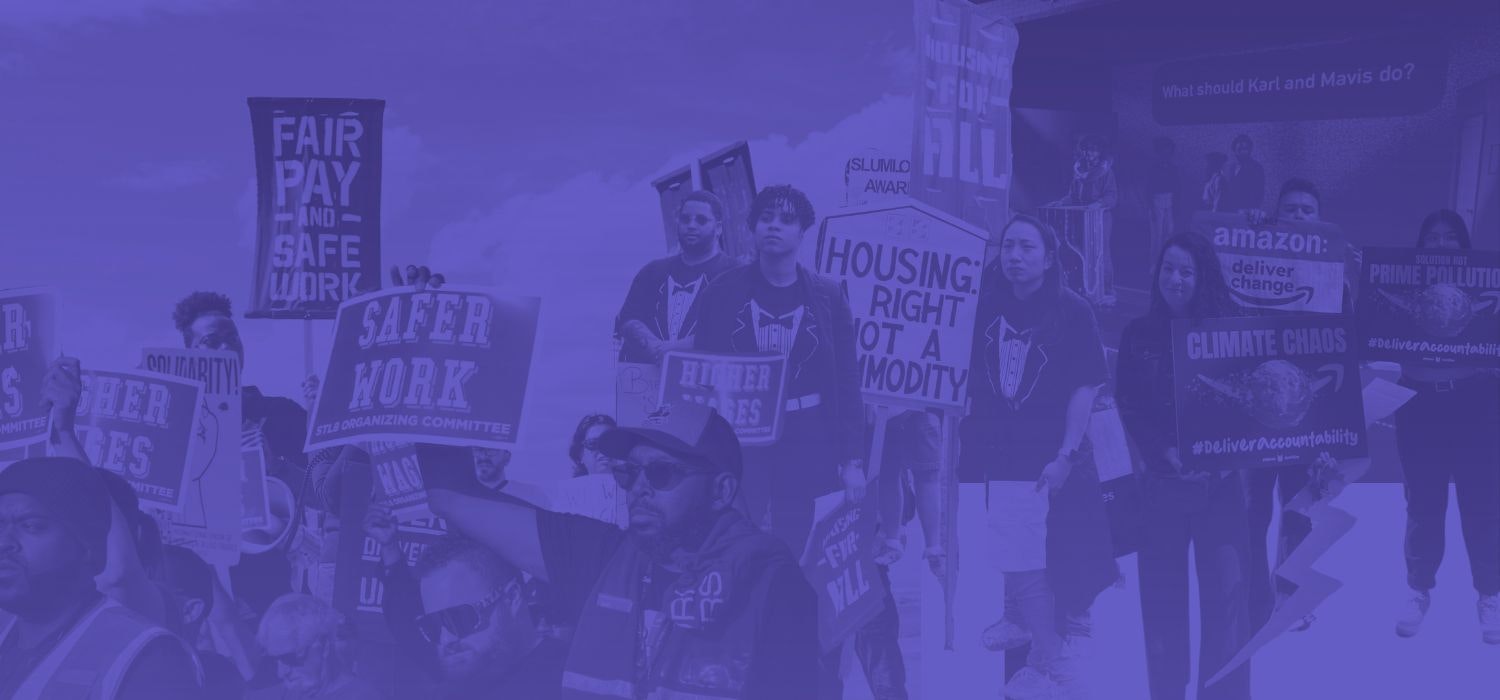
“Let this radicalize you, rather than lead you to despair.”
— Mariame Kaba
As 2023 comes to an end, we’re reflecting back on a year of grief and joy, struggles and victories. While many of us have felt the weight and toll of this year, there have been many moments of solidarity, of collective action, of fighting and demanding better together. These are the moments from which we draw hope and forge the people power we need to shape a future worthy of our communities.
The stakes are high. Corporations are extracting from our communities at every turn: hiking the costs of rent and food, paying low wages, meddling in our government, fueling climate destruction, and enabling authoritarianism. These threats are what drove us to develop our long term agenda for multiracial feminist democracy.
We know where we’re going, and we know what we need to get there. We must choose fights that both address immediate needs and grow the infrastructure that sustains people, communities, and movements for long term fights. We need to draw on our strengths, experiment and adapt to the current moment, and expand our movements to win the future we all need.
PowerSwitch Action has grown with this vision in mind: we’ve welcomed a new affiliate, hired new team members, scaled up our resources to support campaigns, and woven powerful coalitions across the country. This increased strength has let our network level up our work this year:
We’ve been testing out new strategies and taking on new fights with an eye to how they can open the door to even bigger wins — from connecting together Uber and Lyft drivers organizing across the country, to introducing laws in Missouri that reveal how corporation-driven state bans block community freedoms.
We’ve been crafting stories that change the terrain on which we campaign, like turning a video game into a play to connect the legacies of redlining and racism to fights for housing justice in Detroit today.
We’ve been developing the leadership of Black, Brown, and gender-oppressed community champions, and establishing movement homes — such as tenant and neighborhood unions — that sustain organizing.
As we look forward to 2024 and beyond, the threats and challenges ahead are daunting. But we’re in this fight for the long haul, because that’s how we win. When we work from a long term vision, each campaign we wage, each leader we train, and each narrative we shift brings us one step closer to a multiracial, democratic, feminist future. We’re ending this year filled with energy and hope for what we can accomplish together.
In solidarity,
Lauren Jacobs, Executive Director of PowerSwitch Action
Kyra R Greene, PhD, Board Chair of PowerSwitch Action
When we launched our long term agenda for multiracial feminist democracy, we knew that we needed to grow to advance our vision. We needed more people organized and engaged in forging a just economy and society. We needed a bigger network of stronger organizations. And we needed more resources to make all that possible and sustain it for the long haul.
This year, we’ve taken strides along this path:
We’ve welcomed our newest affiliate, the dynamic Missouri Workers Center that’s organizing with Amazon warehouse workers, taking on corporate-backed bans on community freedom, and making sure that public resources serve the public good.
We’ve grown our team, adding over two dozen full-time folks at our affiliates and national staff.
We’ve scaled up our resources, increasing our network’s total annual budget by over $6 million.
This additional strength has enabled us to kick open new doors, reshape the terrain on which we fight, and develop leaders and institutions that are paving the way towards a future where we can all thrive. Read on to see how!
377 staff
across our network.
$46 million
annual network budget.
Over 1/3
of the US population lives in regions where our affiliates organize.

Fights That Open New Doors

Achieving transformational change requires blending urgency with a long term vision. Corporations have spent decades and billions tilting our economy and government to serve their interests. To move governing power to our communities, we must pick our campaigns with an eye to how each fight today opens doors to bigger wins tomorrow.
This year, we’ve been launching new fights and strategies to build power and open doors for wins with long-lasting impact:
We’ve been taking on new fights, like linking together groups of app-based drivers organizing around the country to confront Uber’s health and safety crisis.
We’ve been testing new strategies, such as introducing legislation that reveals the harms caused by corporate-backed bans on communities’ freedom to care for each other.
We’ve been drawing on the power built through years of organizing, coalition weaving, and co-governance work to enact victories unthinkable a few years back, from groundbreaking housing and public safety measures in Chicago to building out local infrastructure for protecting workers in Oakland.
These campaigns are reining in unchecked corporate power, making way for democracy that centers public needs, and shaping our economy to serve the many instead of the few.
We won
$1.2 billion
for community priorities and needs.
Our campaigns won healthier and more just communities for
40+ million
people across the US.
Featured Stories

Stories that Change the Terrain

To shift power in our economy and society, we need to transform how we see each other. For decades, corporations and their allies have peddled stories that government is broken, individuals should only look out for themselves, and private industry knows best. To transform our economy we need new stories: stories that expose the corporate agenda, show what's possible when we come together, and expand our view of what's possible.
This year, we've been telling these stories that reshape the terrain on which we campaign:
We’ve been harnessing the power of art to reach people where they’re at, such as turning a video game about housing insecurity into a live play that connects the legacies of redlining and racism to fights for housing justice in Detroit today.
We’ve been supporting people in telling their stories of corporate harm, like Amazon workers putting on a workers’ opera as part of their organizing to challenge unsafe working conditions.
We’ve been using creative tactics to change narratives, from crafting public education toolkits illustrating the potential for energy democracy, to staging a spoof award show turning the spotlight on the real estate interests driving harmful state bans in Colorado.
These projects are chipping away at the problematic narratives that reinforce corporate control, building hope for authentic democracy and a people’s economy, and drawing folks into organizing spaces.
Our digital storytelling reached
1.5+ million
people online.
We improved the jobs of over
2 million
working people.
Featured Stories

Leaders & Spaces that Pave the Way
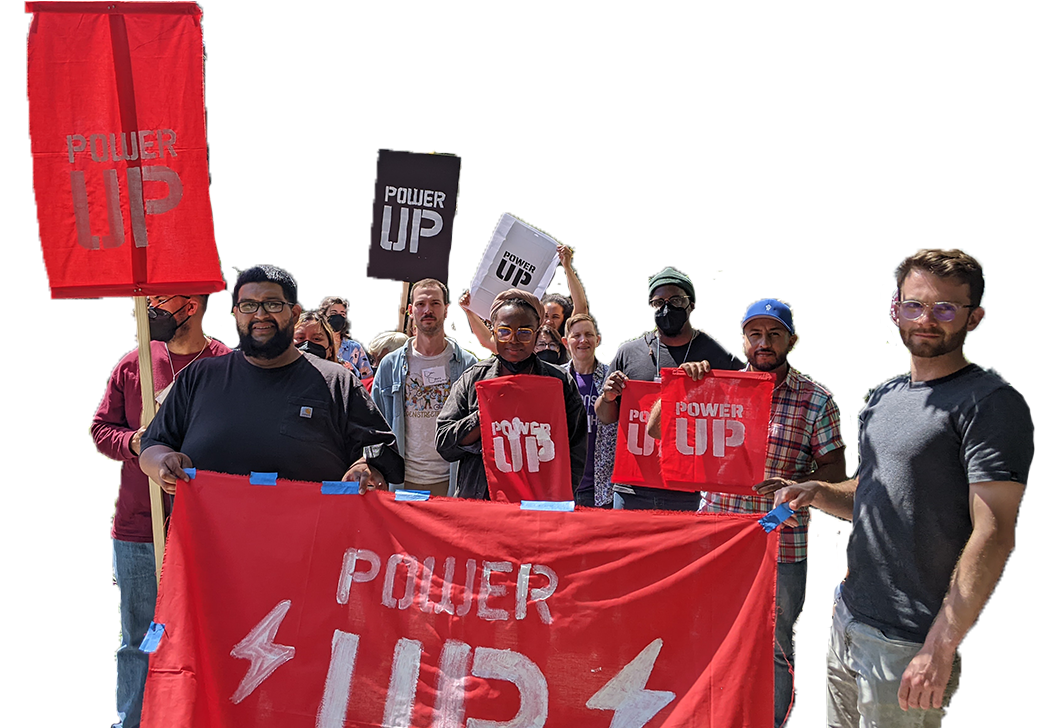
Our future depends not just on the policies we win but on the power we build along the way. In an economy that serves the few, those few must keep the many divided. To take on white supremacy, authoritarianism, and corporate extraction, we need leaders and spaces that bring people together and shift power.
This year, our network has drawn on what we’ve learned through years of organizing and leadership development work to grow civic institutions that pave the way for authentic democracy.
We developed over
350 leaders
in our communities.
We equipped over
14,000 people
to advocate for better working conditions.
Spaces that Sustain Organizing
Our network is growing institutions where people can come together with others to have a collective voice in all aspects of their lives. This year, we’ve been building up the infrastructure to bring folks in and support them in developing and using their voice to build power for their communities:
We’ve been engaging more people through worker and tenant outreach and education programs that arm them with the knowledge and support to fight mistreatment by bosses and landlords.
We’ve been building institutions that bring folks together, like tenant and neighborhood unions in Anaheim and Concord, community schools in San Diego, and a dedicated movement space in Atlanta.
Leaders who Forge the Path Ahead
We’re building a leaderful movement, equipping people who have been excluded from decision-making to lead in the streets, in the halls of power, and in our organizations. This year, we’ve been preparing grassroots leaders to forge the path toward our shared vision of the future:
Through organizing academies, we’ve supported working-class folks, women, and people of color as they’ve stepped up to demand better for their families, neighbors, and coworkers.
We’ve expanded our programs that train community champions to lead with values in elected and appointed office.
We’ve deepened the skills and resilience of our network’s staff through our sixth Transformational Leadership Retreat and a new bilingual project that blended leadership development with hands-on campaign support.
